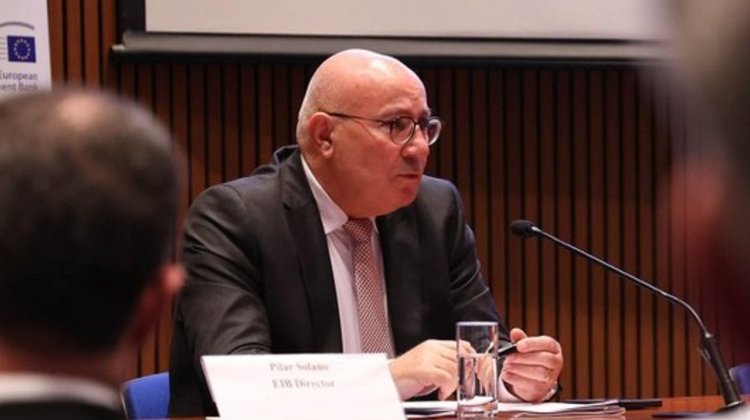Cyprus receives greater EIB support in 2023, with heavy focus on green investments
14:42 - 29 February 2024

Lending in Cyprus last year by the European Investment Bank (EIB) Group rose to €257 million, up 3% compared with 2022. The new financing went towards increasing economic competitiveness, mitigating climate change and improving everyday life for residents.
The EIB committed €130 million to support a programme called THALIA that targets smart and green investments including in digitalisation, water, energy, environmental protection and vocational training. Also in focus were wastewater investments in Nicosia, Limassol and Larnaca totalling €100 million to help Cyprus comply fully with EU water legislation. The remaining €27 million came from the EIB’s European Investment Fund unit.
“In 2023, the EIB Group exceeded its targets in Cyprus,” said Kyriacos Kakouris, EIB Vice President for Cyprus. “The support is vital to help steer the country toward smart, digital, and sustainable investments, while also maintaining robust employment and social cohesion. In addition to the financial support, the number of important advisory assignments, especially in the energy sectors, will help accelerate the country’s adoption of climate-friendly investments.”
The new financing signed in 2023 was the sixth-highest among EU countries as a share of gross domestic product.
Finance Minister Makis Keravnos said: "I am pleased that the ongoing close cooperation between the EIB and Cyprus has led to new commitments totalling €257m. This support is important and targeted, and in line with political priorities, such as sustainable energy and natural resources, innovation and sustainable cities and regions, which is aligned with our own priorities. It was also an important year in terms of disbursements, with more than €220 million disbursed to support projects in various sectors. I am confident that the EIB will continue to have even more effective investments in Cyprus and in all EU countries in the years to come as we face current and future challenges."
Water, digital and green sectors
The €100 million wastewater investments in Nicosia, Limassol and Larnaca fund the preparation and construction of sewer networks and treatment facilities.
Cyprus is one of the most water-scarce countries in the world and faces growing demand for water. Since Cyprus’s accession to the EU in 2004, the EIB has approved financing of more than €650 million for water projects throughout the country.
THALIA, which has a budget of €1.8 billion for 2021-2027, is central to Cypriot efforts to bolster economic resilience and competitiveness. The €130 million last year will finance operational programs and priorities, with the EIB helping the country to steer its economy through the digital and green transitions while supporting jobs and social cohesion.
Equity ecosystem
In 2023, the EIF supported the nascent equity ecosystem in Cyprus. The team appointed to manage the Cyprus Equity Fund, the country’s first publicly supported venture capital fund, is currently fundraising.
The EIF's €27 million commitment was signed in September 2023. Investments are expected to start in the second quarter of 2024, marking a big step towards improving access to risk finance for startups and innovative companies in Cyprus.
In parallel, EIB Advisory expanded its footprint in Cyprus by providing technical assistance to both the public and the private sectors in infrastructure projects relating to the environment, climate, digital innovation and urban development.
The highlights of advisory support in 2023 included assistance with the establishment of an efficient organisational and governance structure – as well as robust industrial safety procedures – for the Vasilikos Energy Centre, an assignment worth €1.5 million. Also included was the implementation plan for the operation of the New Cyprus Museum (NCM), to be financed by the EIB in 2024.
Investment survey
Meanwhile, the EIB also released its 2023 Investment Survey signalling that, despite tighter monetary conditions, Cypriot firms were generally positive in their investment intentions for last year and more optimistic than other EU businesses.
The survey found that the energy crunch hit firms in Cyprus even harder than others in the EU. Energy prices were a major concern for more than three-quarters of Cypriot businesses – 76% compared with an EU average of 60%. Nonetheless, Cypriot businesses plan to prioritise investment in replacing existing energy products and services (40%) or in new products or services (34%) in the next three years.
Almost all Cypriot firms – 94% of them – have outlined one or more strategies to counter energy-market shocks through energy savings and mixes.
Every business in Cyprus has faced some disruption related to international trade, slightly above the 96% in the EU as a whole, with the biggest obstacles being logistics and transport, changes to customs/tariffs and access to commodities and raw materials.

